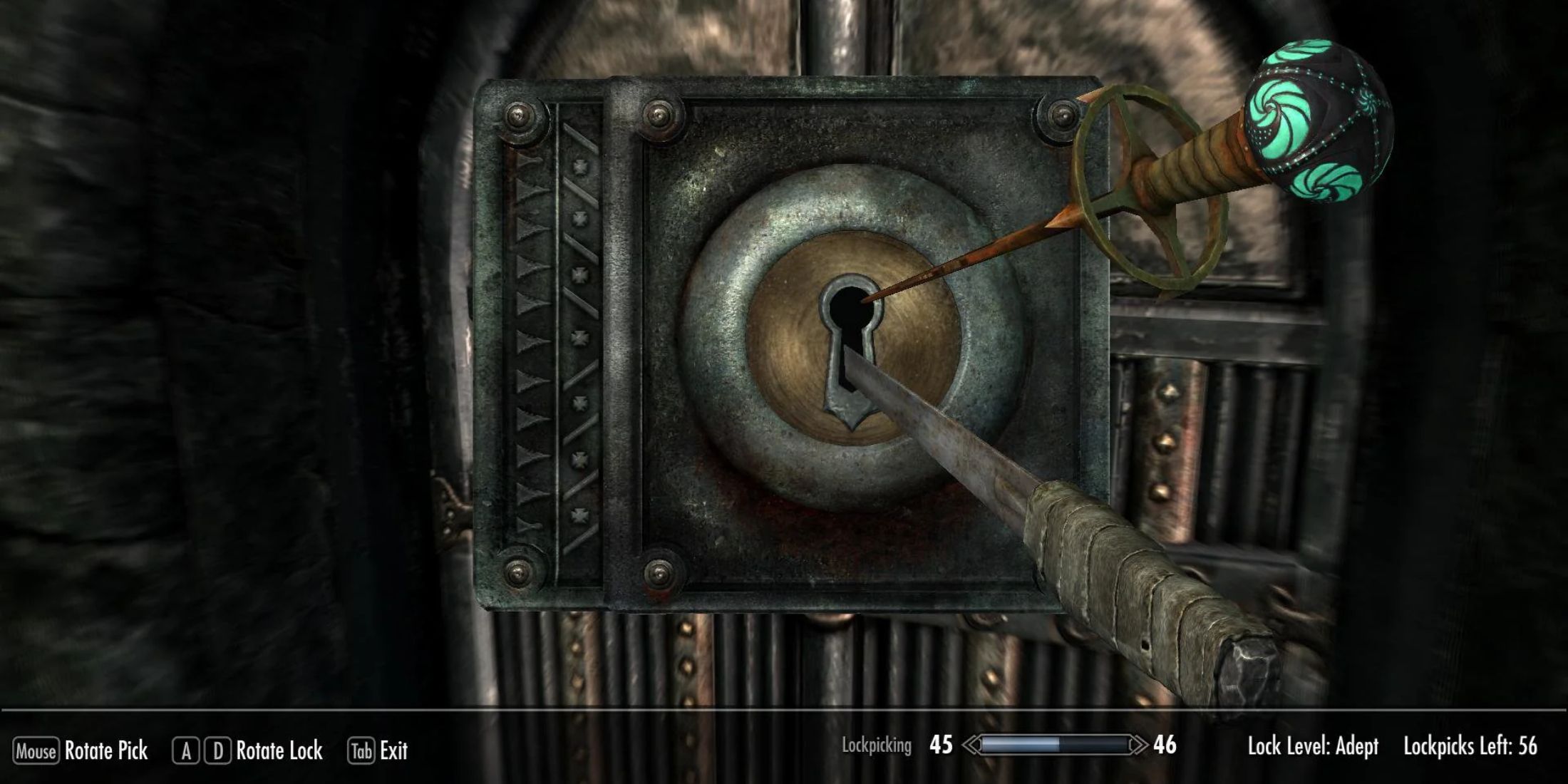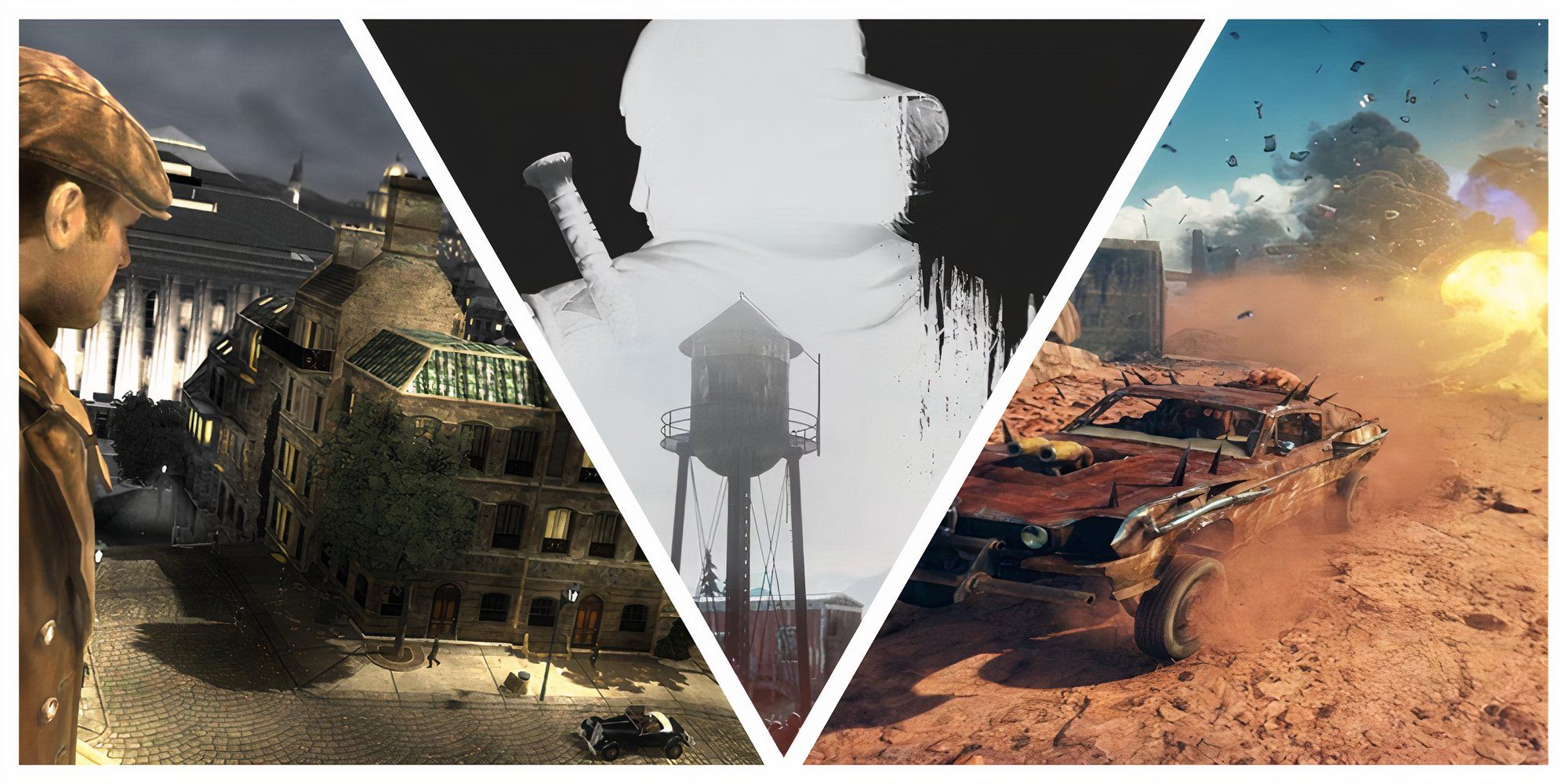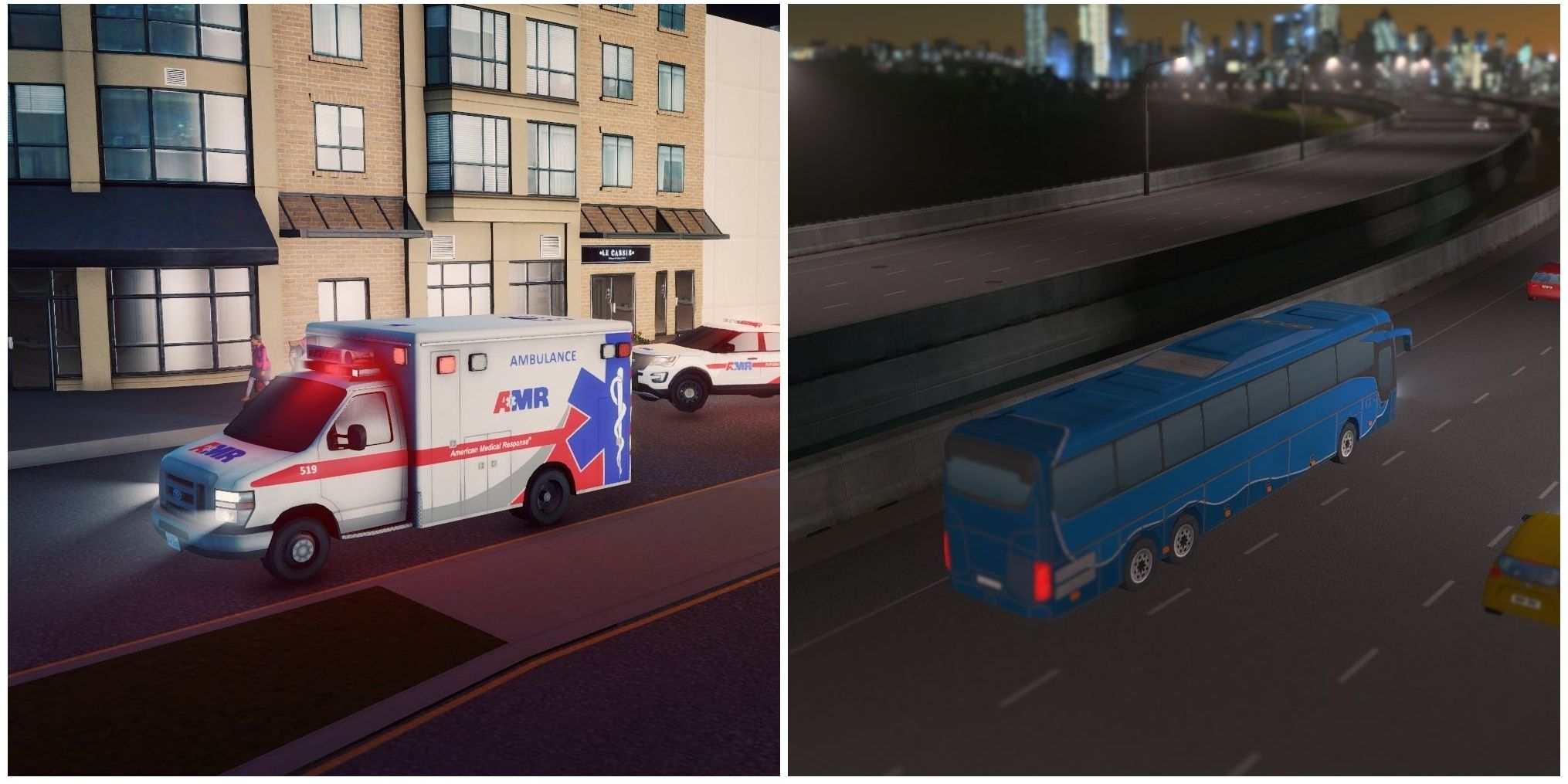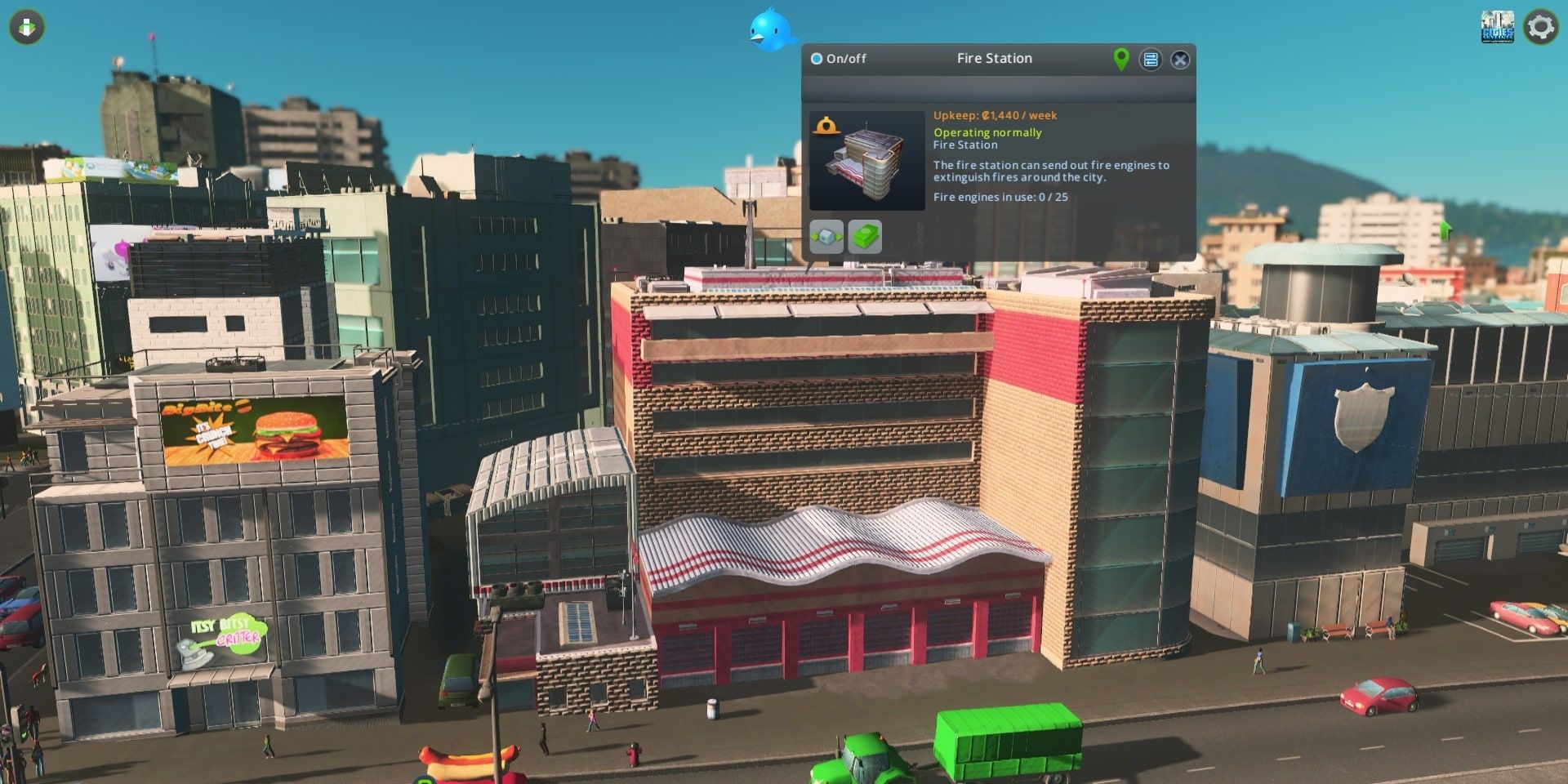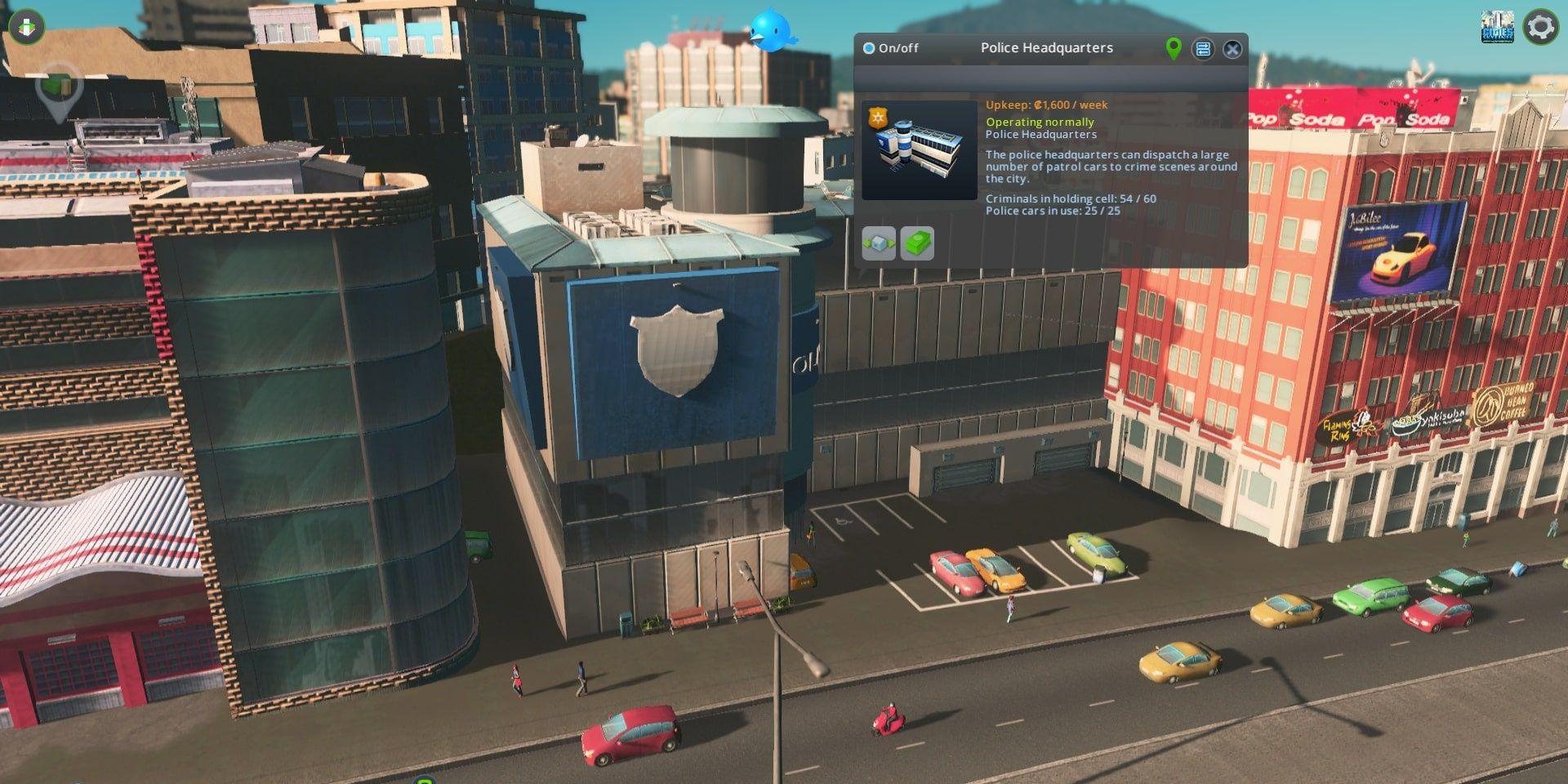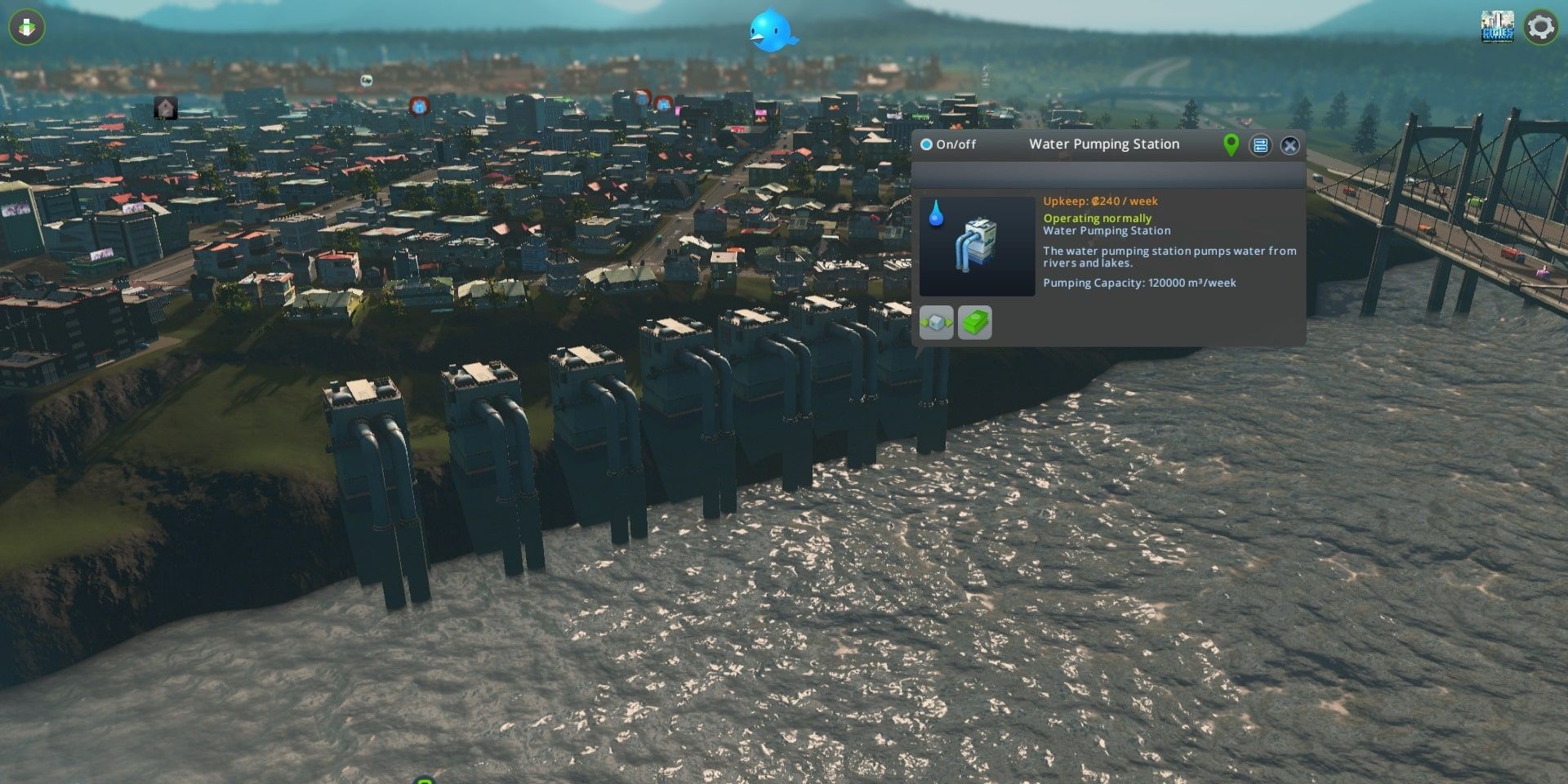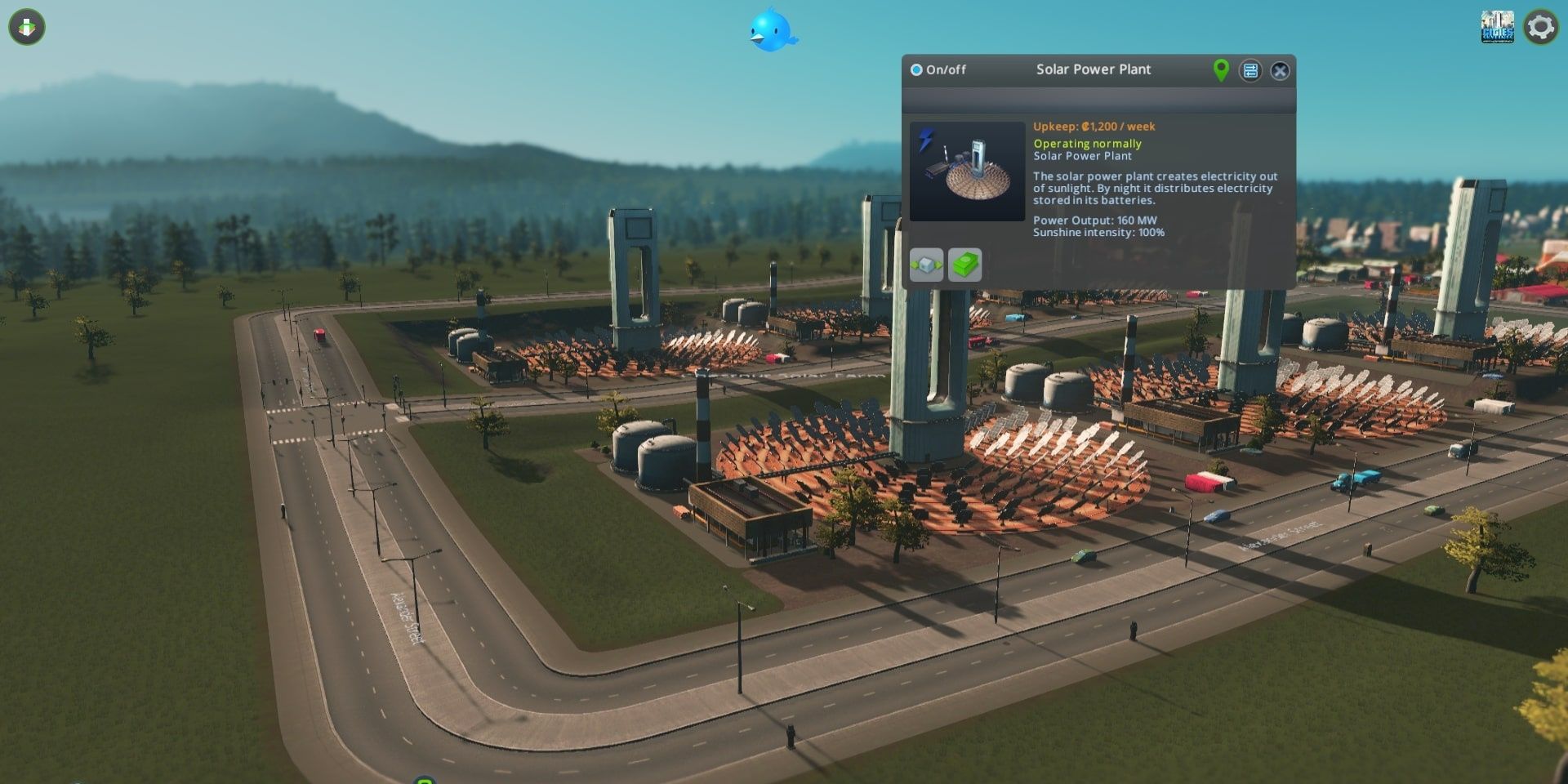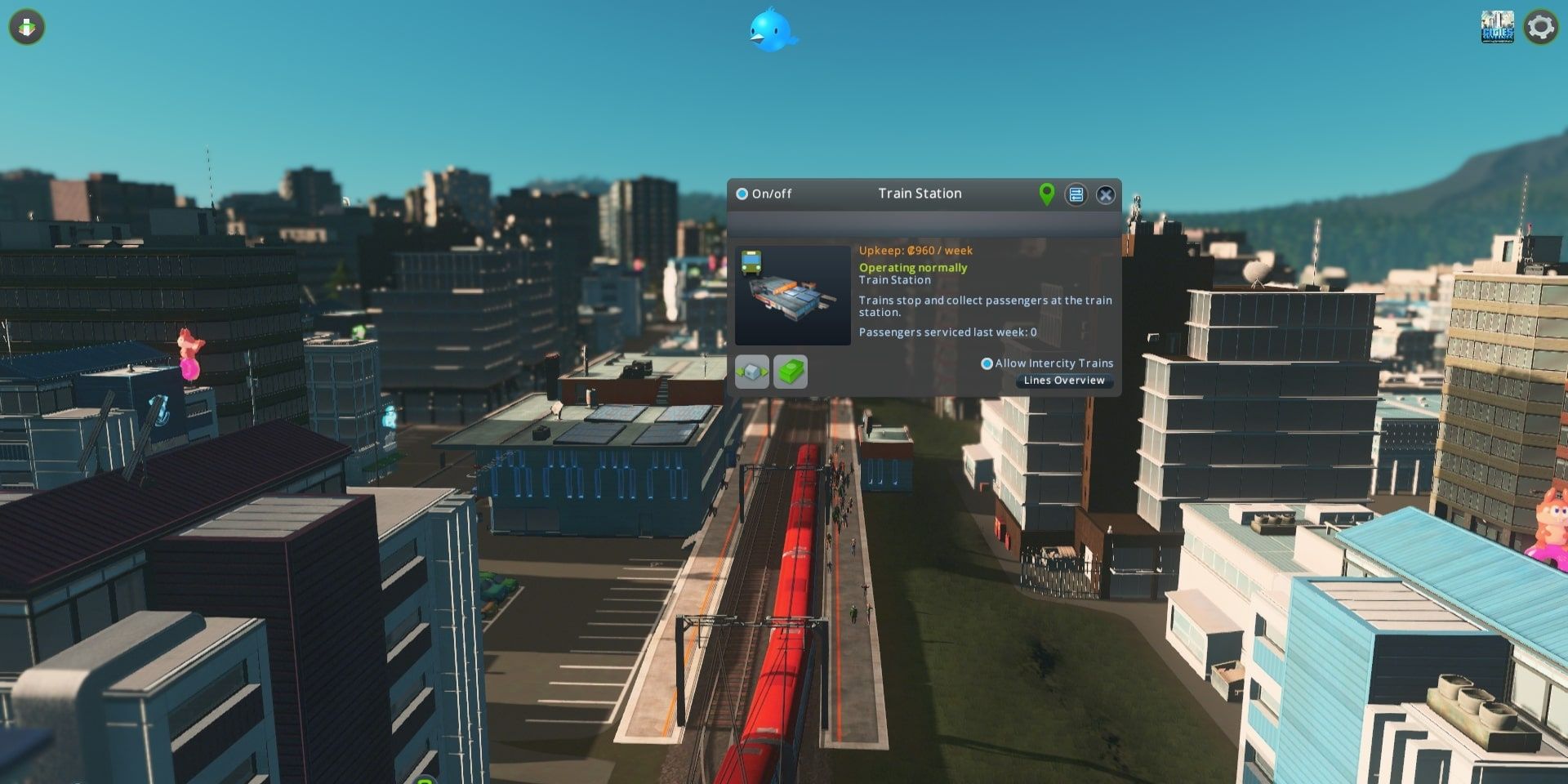Cities: Skylines has players step into the shoes of a mayor and town planner, tasked with creating a full-fledged and functional metropolis. Not only do players need to lay out road networks and plan districts, but they must also juggle the various public services that are essential to their citizen’s well-being.
Luckily, the game features a budget mechanic, in which players can adjust how much money they want to allocate to each service, which can help or hinder the coverage and capacity of said services. Here are the best services in Cities: Skylines that players should consider giving a boost to.
9 Parks & Plazas
Parks help to increase nearby land value and level up buildings by providing entertainment to citizens. Increasing the budget of parks & plazas will make these areas better maintained and subsequently produce more happiness, which in turn allows for buildings to be upgraded and income to be higher.
That being said, raising the park's budget isn’t all that important. As long as players are generous enough with their park placement across the city, and the budget is kept at 100%, parks should do their job just fine.
8 Fire Department
Placing a fire station in a particular neighborhood gives that area some protection against fires. It also helps buildings level up by increasing surrounding land value.
There is usually no need to increase the budget of the fire department if there are enough stations across the city. The only scenario in which players might want to reconsider is when there is a large, out-of-control fire raging within the city. Temporarily boosting the fire department's budget will cause more fire engines to be sent out from each station, which will help to tackle the blaze more quickly.
7 Police Department
Police stations bring down crime rates over a certain area and help increase land value. Crime isn’t a serious issue in Cities: Skylines, so scattering a few of these buildings across the city should be enough for players to keep everything under control.
As a result, there’s usually no need to increase the police department’s budget. Even in areas that aren’t covered by stations, police cars will still be dispatched and respond to emergencies relatively quickly. Players simply need to ensure that the roads are as free of traffic as possible to minimize response times.
6 Garbage
The build-up of trash can become a real problem in Cities: Skylines, with citizens becoming sick and buildings being abandoned if the problem persists. Players will soon find that a robust garbage service is essential when trying to sustain a functional city.
Increasing the garbage budget allows for more garbage trucks to be sent out to collect trash and bring it back to a landfill or an incineration plant. This may solve the issue, but if the build-up is caused by heavy traffic delaying the player’s garbage trucks, adding more vehicles to the mix won’t make things any better. Players should instead focus on fixing any traffic bottlenecks before turning to the budget.
5 Healthcare
Much like police and fire, healthcare buildings send out emergency vehicles to respond to and bring back sick citizens for treatment. They also increase surrounding land value.
Once again, there are better ways to solve healthcare issues rather than increasing the budget. Players should ensure industrial buildings are kept away from residential ones, to avoid pollution spilling over, and that there is enough capacity in graveyards and landfills for corpses and trash. All of this will prevent citizens from getting sick, and keeping traffic at a minimum will help prevent ambulances from getting tied up in jams.
4 Water & Sewage
Citizens need access to clean water, and a way to get rid of their not-so-clean water. Water pumping stations and sewage drain pipes are the way forward, and adjusting their budget can impact how much water they can process at any one time.
Early on in the game, it is often a good idea to reduce spending on water as there will be limited demand for it. As the city grows, players will have to place new pumps and increase spending to meet the demand. While increasing the water budget does improve water processing capacity, pumps and pipes are relatively cheap, so it’s usually more cost-effective to simply buy another one rather than push the budget past 100%.
3 Education
Schools and universities are essential to the development of the player’s city. These services educate citizens, equipping them to perform harder and more sophisticated jobs. Educated workers help buildings to level up, and a lack of them can lead to office and commercial buildings being abandoned due to an insufficient workforce.
Increasing the budget for education raises the capacity of schools, allowing them to serve more of the eligible population without having to place down extra buildings. This can be extremely useful when trying to meet the demands of the city, especially as new high schools and universities can be rather expensive.
2 Electricity
All buildings and services in the city must be supplied with power. Otherwise, nothing will work, and citizens will leave in droves. This makes electricity one of the most important services in the game.
Most reliable sources of power, such as coal, oil, solar, and nuclear power plants, are very expensive, and players may not be able to build a new one when the demand requires it. Increasing the electricity budget allows existing power plants to output more power, which allows the player to meet their city’s demand on the fly. This buys time until they can place down another power plant and permanently raise power production.
1 Transport Services
Aside from traveling by car, there are a number of public transport options available to players in Cities: Skylines. These include bus, metro, train, ship, and plane services, which help move citizens around the city and reduce the volume of traffic on the roads.
Increasing the transport budget raises the number of buses/metro/trains/ships/planes that run in one day, expanding their transport capacity and allowing the player to tailor each service to the city’s current demand. This is invaluable, as many other services rely on roads to function effectively, and reducing overall traffic has a city-wide benefit that will make everything run smoother while also moving citizens around faster.
Cities: Skylines is available for PS4, PS5, Xbox One, Xbox Series X/S, Windows, Linux, macOS, Nintendo Switch, and Google Stadia.

